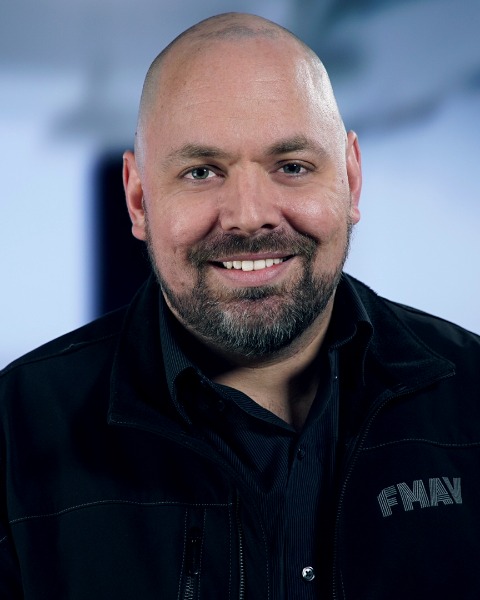Q&A with Anthony Vade, Experience Architect, FMAV
 Anthony Vade
Anthony Vade
Live events are about bringing people together, so social distancing has hit the live events industry in a hard way. For more than 20 years Anthony Vade, Experience Architect at Mississauga, Ontario-based FMAV, has helped event stakeholders use technology to create tangible connections with event attendees. His consultative and collaborative approach has resulted in thousands of successful events traversing four continents.
AVIXA: Considering the rise of digital communities and social media, how has the role of live events changed?
Many live event professionals were intimidated by the concept of digital communities. They feared technology would erode the demand for face-to-face meetings. So much so, that the industry ran campaigns to encourage the promotion of face-to-face meetings as our primary business offering.
I wonder how they feel about this strategy in a post-pandemic world. Many are still saying things like, “When we get back to normal” and “When we meet face-to-face again.” All these sentiments are well and good, but we must not limit ourselves to the actions of the past and miss opportunities to safeguard against potential crises in the future. Restrictive and closed thinking is what got us into this “live event only” mindset. Our lack of adaptability and short sightedness has handcuffed us to live events. We lost our ability to host live events and now struggle to offer any value to the business community.
A more progressive position, and hopefully our future direction, will view the digital world as a part of a wider event experience, whereby, live events influence positive behaviour change, with ancillary and complementary digital experiences aligning and reinforcing change while measuring successful adoption. In essence, this means providing two delivery mediums that enhance, enable, and empower each other. We must intentionally design experiences that integrate and align toward creating positive behaviour change across multiple platforms, live and digital.
AVIXA: How do you keep up with new technology?
Keeping up with technology is a challenge with the present rate of development. To keep abreast with updates, I surround myself with people who are obsessed with technology. I feed them the challenges and goals I encounter, and they share the latest and greatest technology solutions to overcome them. There is a plethora of content online. However, I still find that human beings provide me with most tangible and interesting technology updates.
AVIXA: Why do you think people are still so focused on the gear?
The focus on equipment is driven by several factors. Over the years, many rental houses have measured their success on their ability to increase inventory units or having the most current inventory. Sadly, Moore’s law has a huge influence on the rental house business model, arguably more than other industries. As the rate of technology evolution speeds up exponentially, gear houses rush to invest in the latest equipment, while their window for amortising their investments shortens. Most customers are either ignorant to the overhead cost of inventory investment and maintenance, or they have their own key performance indicators (KPIs) that are misaligned with rental equipment suppliers. Either way, it is the disconnect and lack of empathy for each other’s market drivers that widen the chasm of between-market segments.
One financial misstep, perhaps driven by factors outside of their control, such as a global pandemic where planners find themselves cut out of business completely, is a lack of diversification or a properly articulated value offering. With deeper understanding and alignment toward diverse success metrics, we can find a middle ground that shifts focus back from broad-spectrum KPIs to creating a winning scenario.
AVIXA: How do you shift a client’s (or anyone else’s) focus from the gear to the experience?
It seems redundant to say, but experiences need to be experienced to be understood. That takes bravery and a willingness to try something different. As suppliers and buyers, we need to meet each other halfway. It will be a gradual evolution for both sides. We as suppliers need to do a better job of articulating our value and then apply a cost to it.
Event technology design is like dining at a restaurant. Sure, you can buy the ingredients from the market at a much lower cost. However, the chef’s expertise and the dining experience provides added value. If a client wants silver service but is only willing to pay you like a cut price supermarket or a hole in the wall take out, perhaps you are better off throwing the customer out of your restaurant.
I try and be empathic to the customer’s position. I work closely with customers and prospects, nurturing them through why our offering is different from a commoditized transaction. I explain the value they receive and the additional cost. If they are not willing to engage in that way, we let them go elsewhere. One of the painful truths in sales is, “not every customer deserves to be your customer.” We as sellers have the rights to refuse products and services to customers.
AVIXA: What’s the most important thing to know about any client to be able to communicate with them?
The most important thing we need to understand as event professionals is that we often speak different languages. We need to share a language that communicates how events create value for multiple stakeholders. We need to be open and transparent about our individual roles in creating value at events. We need to stop hiding the inner workings of our industry.
The future of events is co-created. We must tear down destructive business barriers; unify our language and mindsets toward mutually beneficial outcomes. Many times, the customers just don’t understand our position and how it relates to theirs. We need to communicate better and build systems and processes that enable better communication and understanding.
Watch Next: InfoComm 2020 Connected | Finding Opportunity in Crisis: Taking Your Live Events Business to the Next Level



.jpg?sfvrsn=3d19e700_3)

